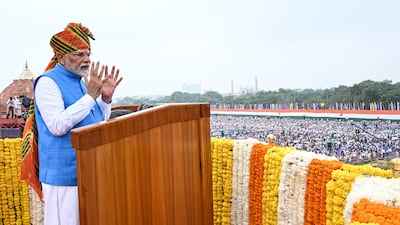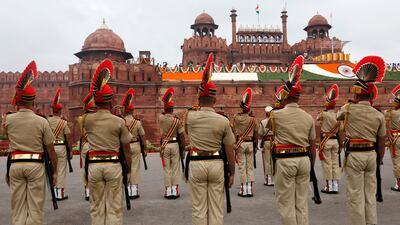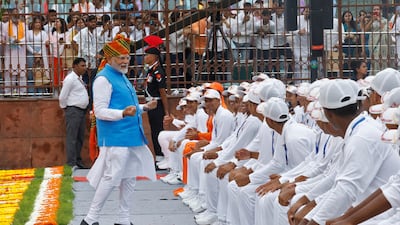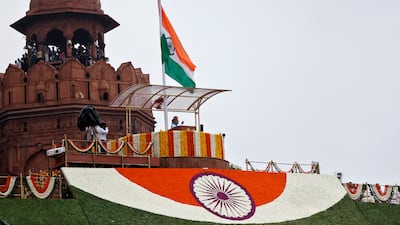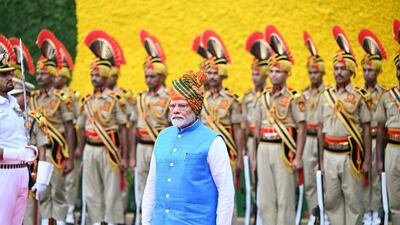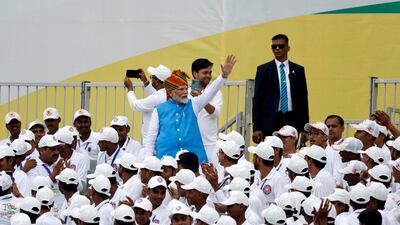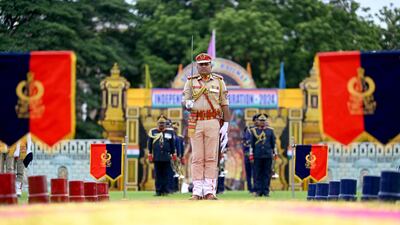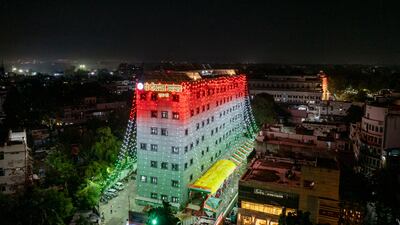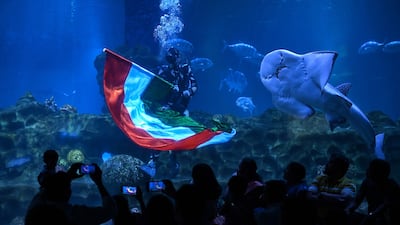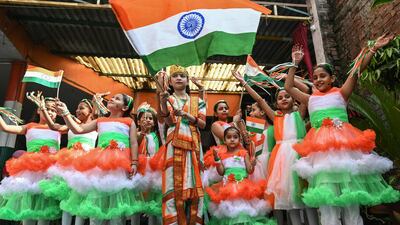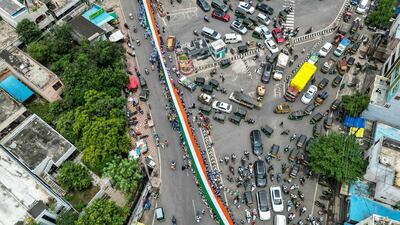India was celebrating its 78th Independence Day on Thursday with pomp and fanfare.
The South Asian nation of 1.4 billion people won independence from Britain on August 15, 1947, after almost two centuries of colonial rule.
Celebrations include parades, poetry recitals and flag-hoisting ceremonies.
Prime Minister Narendra Modi called on the country to work towards his government's goal of Developed India (Viksit Bharat) in his Independence Day speech delivered from the ramparts of the Mughal-era Red Fort in Delhi.
“We take immense pride in being the descendants of the 40 crore [400 million] people who ended colonial rule in India,” Mr Modi said.
“Today, as a nation of 140 crore, if we unite with a shared resolve and move in a single direction, we can achieve Viksit Bharat by 2047, overcoming all obstacles in our path.”
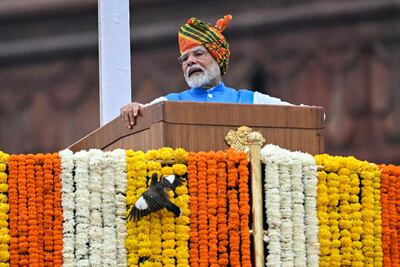
Why is August 15 India's Independence Day?
Britain ruled India for about two centuries but its military and economy were exhausted by the Second World War as anti-colonial movements began to challenge empires.
Within the Indian subcontinent, the UK faced two powerful, seemingly irreconcilable nationalist movements: one calling for the creation of Pakistan, a homeland for the Muslims of South Asia; the other for India, a pluralist nation.
The UK chose to partition the region and withdraw. Under the terms of the Indian Independence Act, the subcontinent was formally divided into two dominions at midnight on August 14, 1947.
The partition of colonial British India into two states, mainly Hindu India and Muslim Pakistan, triggered one of the biggest mass migrations.
About 15 million Muslims, Hindus and Sikhs swapped countries in the political upheaval marred by violence and bloodshed that cost more than one million lives.
At midnight on August 15, 1947, the red sandstone parliamentary building in the heart of India’s capital echoed with the high-pitched voice of Jawaharlal Nehru, the country’s first prime minister.
“At the stroke of the midnight hour, when the world sleeps, India will awake to life and freedom,” Mr Nehru said, words that were heard live over the radio by millions of Indians.
Then he promised: “To the nations and peoples of the world, we send greetings and pledge ourselves to co-operate with them in furthering peace, freedom and democracy.”
It marked India’s transition from a British colony to a democracy – the first in South Asia – that has transformed from a poverty-stricken nation into one of the world’s fastest-growing economies, earning itself a seat at the global high table and becoming a democratic counterweight to its authoritarian neighbour, China.
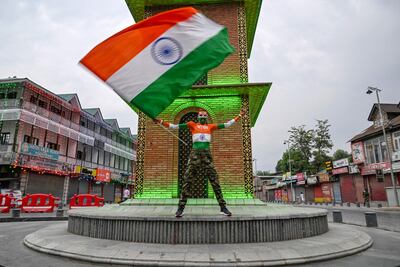
Is it really the 78th Independence Day?
Although India attained independence from the UK in 1947, it only became a fully sovereign republic with its head of state on January 26, 1950.
Between those dates, the 299 men and women of India’s Constituent Assembly worked to imagine their emerging country and to inscribe their vision and foundational legal principles in a national constitution.
The outcome of their efforts is a remarkable document that remains a source of both inspiration and contention today.
Some confusion remains about which anniversary India is celebrating.
If August 15, 1947, is considered India's first Independence Day celebration, then this year is the 78th Independence Day.
However, if the celebrations of Indian independence are counted from the first anniversary on August 15, 1948, then India is celebrating its 77th Independence Day.
What does India's national anthem Jana Gana Mana mean?
Rendered in the prescribed metre, it takes exactly 52 seconds to sing the Indian anthem, Jana Gana Mana.
The lyrics derive from the first stanza of the famous poet, playwright and social reformer Rabindranath Tagore's five-stanza poem Bharot Bhagyo Bidhata, or “Dispenser of India's destiny”, in the Bengali language.
Tagore set the poem to music himself.
